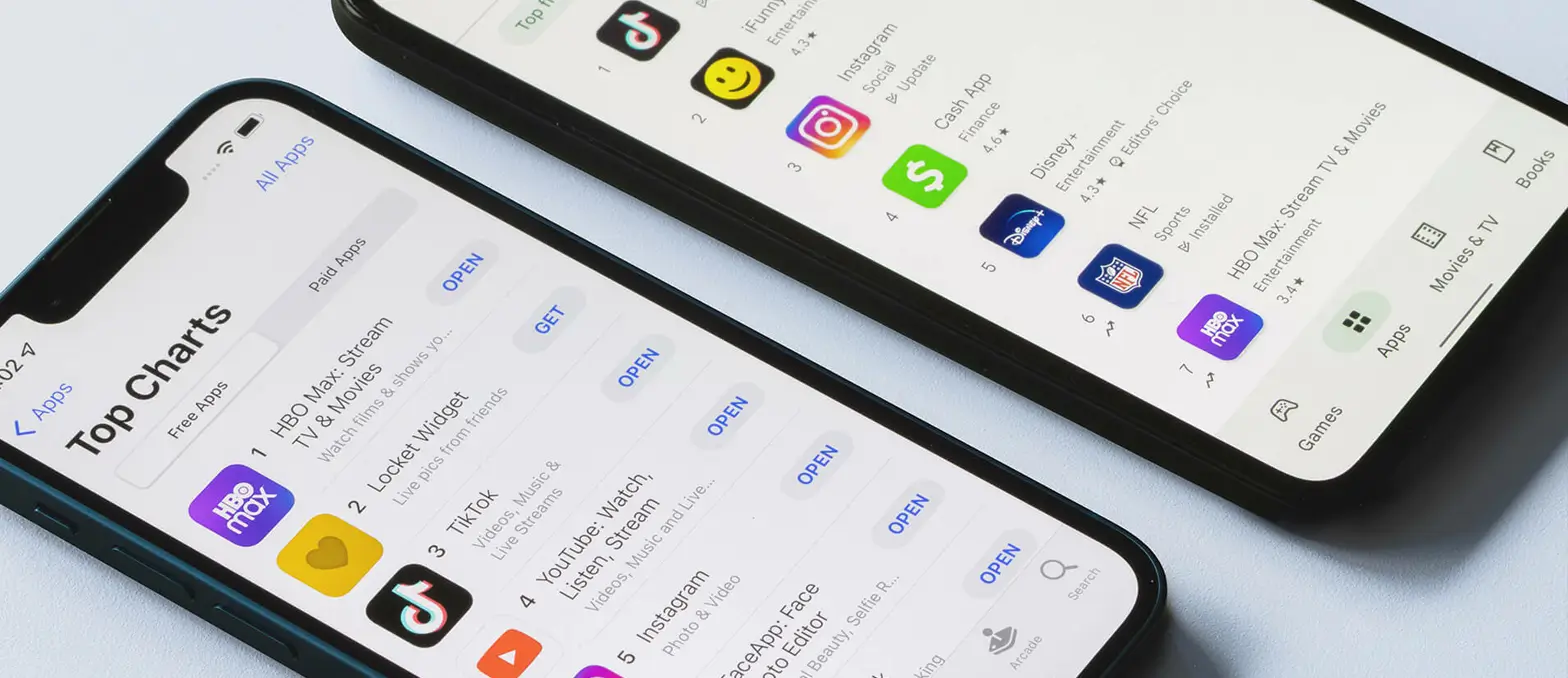Have you ever encountered bugs or glitches in a mobile app that ruined your user experience? As a mobile app user, it’s frustrating to deal with these issues. But as a mobile app developer, it’s even worse to have your users encounter them. That’s why mobile app maintenance is crucial for any successful app.
Mobile app development is a constantly evolving field. With this rapid pace, it’s not uncommon for bugs to slip through the cracks during development. That’s why top mobile app development company USA experts emphasize the importance of bug tracking and maintenance.
In order to ensure the success of your mobile app, it’s essential to implement best practices. This is where bug tracking and maintenance comes in. This includes regular updates, thorough testing, and prompt bug fixes. In this article, we’ll explore some of the top practices for mobile app maintenance, as recommended by industry experts.
Table of Contents
The Need for Mobile App Bug Tracking And Maintenance Services
Mobile app development is an exciting field that has revolutionized the way we interact with technology. However, with the increasing number of mobile apps, the need for mobile app maintenance and bug tracking services is high.
Mobile app maintenance is essential because it ensures that the app remains functional and up-to-date with the latest technology. A mobile app development company must ensure that the app runs smoothly on different mobile devices.
One of the main reasons why mobile app maintenance is necessary is because of the constantly evolving mobile technology landscape. New mobile devices and operating systems are out regularly. Developers must ensure that their apps work seamlessly on these platforms. Failure to do so can result in the app becoming outdated and obsolete. This can lead to a decline in user engagement and revenue.
Another reason why mobile app maintenance is crucial is that it helps to fix bugs and errors. Bugs can cause the app to crash, freeze, or become unresponsive, which can be frustrating for users. A mobile app development company must have a robust bug tracking system. This can help to identify and fix these issues promptly.
Mobile app maintenance also involves updating the app with new features and functionalities. As users’ needs and preferences change over time, developers must ensure that the app remains relevant and useful. This may involve adding new features, improving existing ones, or integrating with third-party services.
In addition to mobile app maintenance, mobile app development companies must also provide ongoing support to users. This includes responding to user feedback, providing technical support, and addressing any issues that may arise. Providing excellent customer support is essential for building a loyal user base and maintaining a positive brand reputation.
Mobile App Maintenance Services Needs
Mobile app maintenance and bug tracking services are not only necessary for the smooth functioning of the app. They are also needed for the security of user data. With the increasing number of cyber threats and data breaches, developers must take all necessary measures to protect user data. This includes regularly updating the app with security patches and fixing any vulnerabilities that may be discovered.
So, mobile app maintenance and bug tracking services are essential for the success of any mobile app. A mobile app development company must have a robust maintenance system in place. This ensures that the app remains functional, up-to-date, and secure. By providing ongoing support to users and addressing any issues promptly, developers can build a loyal user base. This allows them to maintain a positive brand reputation.
Best Practices For Mobile App Bug Tracking And Maintenance
Mobile apps have become an integral part of our daily lives. From social media to banking and shopping, we use mobile apps for almost everything. However, as with any software, mobile apps are prone to bugs and glitches. It is crucial to have a robust mobile app maintenance and support strategy in place that includes bug tracking and maintenance. In this article, we will discuss best practices for mobile app bug tracking and maintenance.
Establish a maintenance schedule
Mobile app maintenance is an ongoing process, and it is essential to establish a maintenance schedule to ensure that your app is always up-to-date. This schedule should include regular updates, bug fixes, and security patches. It is recommended to conduct maintenance checks at least once a month or whenever a new version of the operating system is released.
Use a bug tracking tool
A bug tracking tool is a software application that helps developers and testers to track and manage bugs in a mobile app. There are various bug tracking tools available in the market, such as Bugzilla, Jira, and Trello. These tools help to organize bugs, assign them to team members, and track their resolution status. Using a bug tracking tool makes it easier to manage bugs and ensures that they are resolved in a timely manner.
Establish a bug reporting system
It is essential to establish a bug reporting system that allows users to report bugs or issues they encounter while using the app. This system should be easy to use and accessible from within the app. Providing a simple way for users to report bugs not only helps to identify issues quickly but also shows that you are committed to providing a high-quality user experience.
Prioritize bugs
Not all bugs are created equal, and it is essential to prioritize them based on their severity and impact on the user experience. Critical bugs that affect the app’s functionality or security should be addressed immediately, while minor bugs can be addressed in the next maintenance cycle. Prioritizing bugs helps to ensure that the most critical issues are resolved first, reducing the impact on users.
Test thoroughly before releasing updates
Before releasing updates to the app, it is essential to test thoroughly to ensure that no new bugs have been introduced. Testing should be done on different devices and operating systems to ensure compatibility. It is also recommended to conduct beta testing with a small group of users to identify any issues before releasing the update to the general public.
Monitor app performance
Monitoring app performance is crucial to identify issues before they become critical. This includes tracking metrics such as app crashes, slow loading times, and user engagement. By monitoring app performance, you can identify areas that need improvement and take proactive measures to address them.
Provide timely support
Providing timely support is essential to ensure that users are satisfied with the app and to address any issues they encounter. This includes responding promptly to bug reports and providing clear and concise instructions on how to resolve the issue. It is also recommended to provide a support forum or knowledge base where users can find answers to common questions.
So, mobile app maintenance and support are essential to ensure that your app provides a high-quality user experience. By establishing a maintenance schedule, using a bug tracking tool, prioritizing bugs, testing thoroughly before releasing updates, monitoring app performance, and providing timely support, you can ensure that your app remains stable, secure, and up-to-date.
Costing of Mobile App Bug Tracking And Maintenance
Mobile app developers and mobile app development services have a crucial role in the success of any mobile app. Developing a mobile app is a complex process that requires a significant investment of time, money, and resources. However, the work doesn’t stop once the app is launched. The app also requires constant monitoring, bug tracking, and maintenance to ensure that it continues to perform optimally and meet the needs of its users. In this article, we will discuss the costing of mobile app bug tracking and maintenance.
Bug Tracking and Maintenance
Bug tracking and maintenance are essential for the smooth operation and success of any mobile app. Bugs can cause crashes, slow performance, and other issues that can negatively affect the user experience. Therefore, it is essential to track and fix bugs as soon as they are identified to maintain the app’s performance and security.
The cost of app maintenance depends on several factors, including the complexity of the app, the frequency of updates, and the level of support required. However, it is generally recommended to allocate at least 20% of the app development costs towards maintenance and updates.
Mobile App Testing
Mobile app testing is an essential part of the app development process. It helps to identify bugs and other issues. Testing must happen throughout the development process, including during the design, coding, and integration phases.
The cost of mobile app testing depends on the testing method used, the complexity of the app, and the number of devices and platforms the app needs to be tested on. Automated testing is generally less expensive than manual testing, but it may not be as effective in identifying certain types of bugs.
Mobile App Performance
Mobile app performance is crucial for the success of any app. Slow performance, crashes, and other issues can lead to user frustration and negative reviews. Therefore, it is essential to optimize the app’s performance to ensure that it runs smoothly and efficiently.
The cost of optimizing mobile app performance depends on several factors, including the complexity of the app, the level of optimization required, and the level of support required. It is generally recommended to allocate at least 10% of the app development costs towards performance optimization.
App Updates
App updates are necessary to fix bugs, improve performance, and add new features to the app. Updates also help to keep the app up-to-date with the latest operating systems and devices.
The cost of app updates depends on several factors, including the complexity of the update, the frequency of updates, and the level of support required. You must allocate at least 10% of the app development costs towards updates.
App User Experience
App user experience is critical for the success of any app. A good user experience can lead to positive reviews, increased user engagement, and higher retention rates. Therefore, it is essential to design and develop the app with the user experience in mind.
The cost of app user experience depends on several factors, including the complexity of the app, the level of user experience required, and the level of support required. You must allocate at least 10% of the app development costs towards user experience.
App Security
App security is crucial for the protection of user data and the prevention of hacking and other security breaches. Therefore, it is essential to design and develop the app with security in mind.
The cost of app security depends on several factors, including the complexity of the app, the level of security required, and the level of support required. You should allocate at least 10% of the app development costs towards security.
So, mobile app bug tracking and maintenance are essential for the success of any mobile app. The cost of app maintenance depends on several factors, including the complexity of the app, the frequency of updates, and the level of support required. However, you must allocate at least 20% of the app development costs towards maintenance and updates. Other factors that affect the costing of mobile app bug tracking and maintenance include mobile app testing, mobile app performance, app updates, app user experience, and app security.
Boost App Performance: Track & Fix Bugs Flawlessly!
Summary
In conclusion, mobile app developers and mobile app development services must prioritize bug tracking and maintenance in order to provide users with a seamless experience. By implementing best practices such as continuous testing, user feedback, and efficient communication between teams, mobile app developers can ensure that their apps are functioning properly and meeting user expectations. Additionally, regular maintenance and updates can help to address any issues that arise and improve overall app performance. By prioritizing these practices, mobile app developers can build trust with their users and establish a strong reputation in the competitive app market.
FAQs
What is mobile app maintenance, and why is it important?
Mobile app maintenance refers to the ongoing process of monitoring and updating an app to ensure it functions correctly and meets the changing needs of users. It’s important to maintain a mobile app regularly to avoid bugs, improve user experience, and keep up with technological advancements.
What are some best practices for mobile app maintenance?
Some best practices for mobile app maintenance include regularly testing the app for bugs and issues, updating the app to stay in line with the latest operating systems and devices, responding quickly to user feedback and complaints, and monitoring app performance metrics to identify areas that need improvement.
How do I track bugs in my mobile app?
To track bugs in your mobile app, you can use bug tracking software. Some popular bug tracking tools include Jira, Bugsnag, and Crashlytics. You can also encourage users to report bugs directly through the app and provide a clear process for doing so.
How can I ensure my mobile app is optimized for different devices and operating systems?
You can use tools like responsive design and adaptive layouts to ensure your app displays correctly on different screen sizes and resolutions.
What are some common maintenance issues with mobile apps?
Some common maintenance issues with mobile apps include slow loading times, crashes, compatibility issues with different devices and operating systems, and security vulnerabilities. Regular maintenance and testing can help address these issues and ensure your mobile app remains functional and secure. mobile app remains functional and secure.






